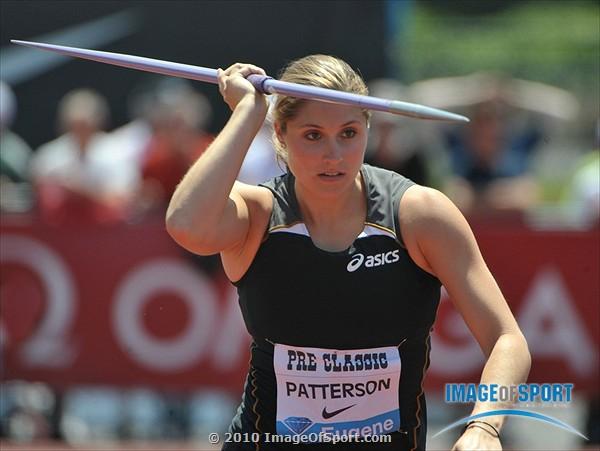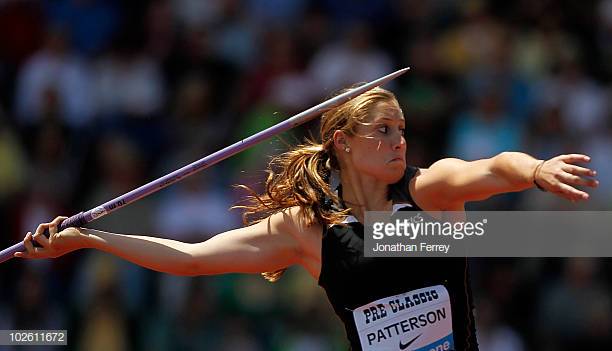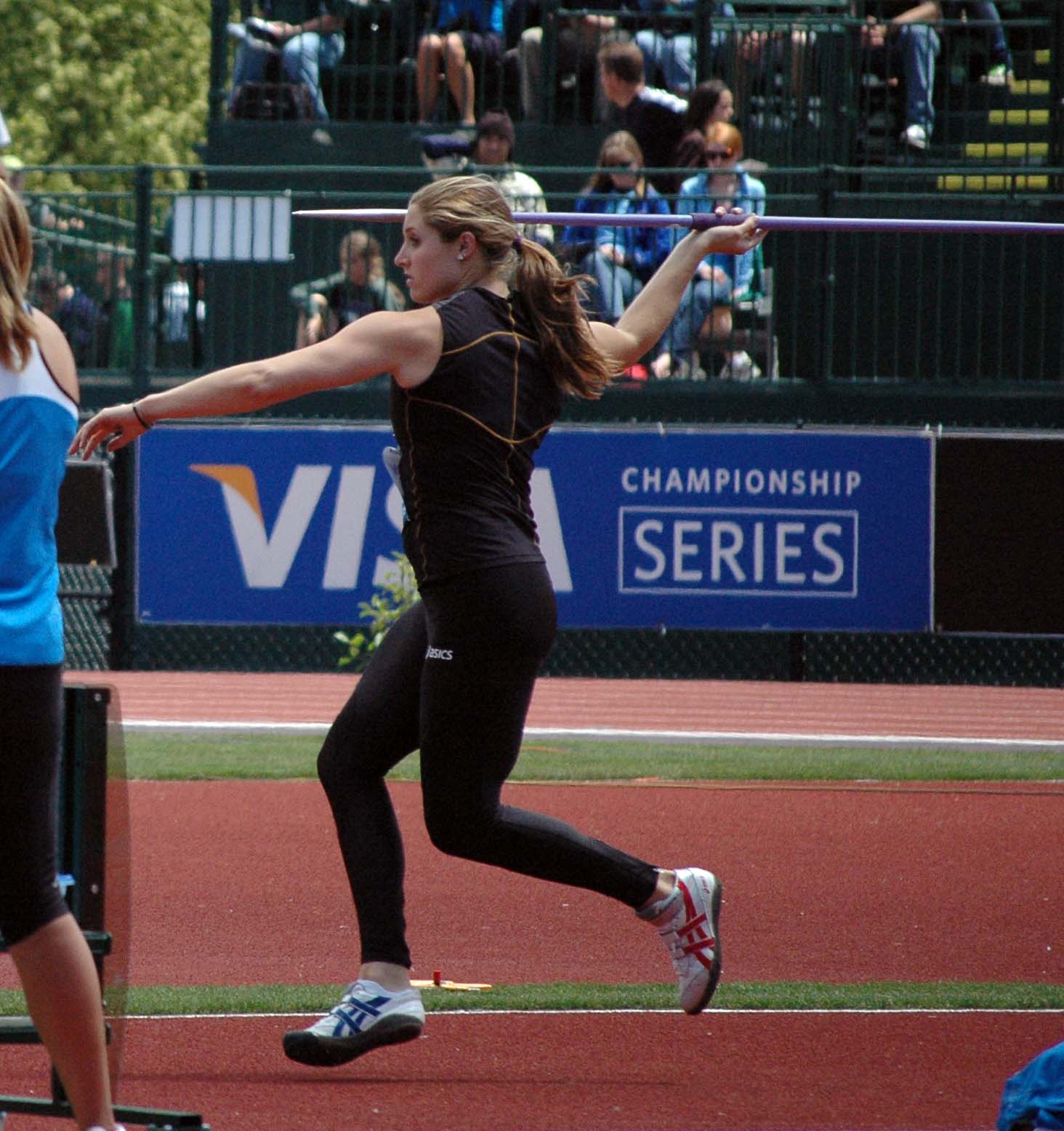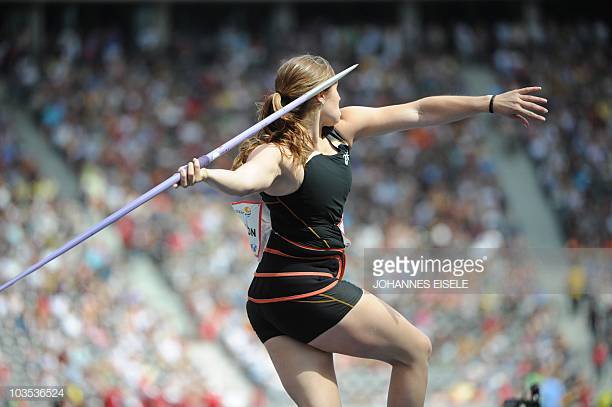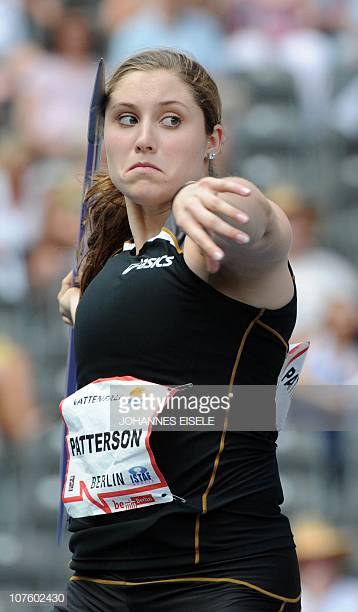I had a great question from someone I am really excited to see make a debut in professional track and field this summer about looking back on first-year struggles. Rookie mistakes, if you will! While I’m really proud of how my rookie season went, there are a few things that I wish I would have known, or at least been more comfortable with.
My first real professional season was 2010. Hanging on for dear life after a collegiate season in 2009 doesn’t really count, but what I see now about my PR at USAs in 2009 is that Coach Zuyderwyk prepared me well for the post-collegiate season, I just didn’t have the experience to take advantage of that at Worlds that year. When Russ and I moved to the Chula Vista Olympic Training Center in the Fall of 2009, I had no idea what professional athletics was about. I changed coaches (read: training philosophies and technique), I had a new training partner, and all of a sudden I had all the time in the world. That year of training was phenomenal for me, and I hope most rookies have the same experience: Removing the stress of not only school, but other on-campus obligations meant that my recovery was amazing, friendships were fostered well, watching Russ grow as an athlete alongside me and having more time for each other made our relationship stronger, and I just thrived with more javelin-specific information. One of the constants I think for everyone in that first year of training as a professional athlete is that leveling up your training (volume and intensity and intention) means you’re exhausted all the time, therefore rest is a natural thing to do! Your recovery is really important, but it’s also just automatic. I slept constantly in 2009-2010.
AR during rookie season…
I had a little back hiccup, but regardless of that, I was really well-prepared for the 2010 season. I started in April, competed a few times in May, and then the focus of my year was USAs and beyond (end of June/beginning of July resulted in two of the three furthest throws of my career in winning USAs/setting the American Record and winning Prefontaine). When I went to Europe after that, though, I comparatively struggled. I had some really good showings (mid-64s, lots of top 3 placings during the Diamond League’s inaugural season), but I wasn’t at my best in Europe, and I absolutely crumbled at the very end of the year, when it mattered most (an “off” year, the Diamond League Final and the IAAF Continental Cup were the biggest meets of the season).
Photos from Pre 2010:
So, you’ve had this great training year in which hopefully you feel totally free to train how you want/are coached and see weekly improvements, because now this is your job! Even if you have another job, that is my wish for you. I LOVED my first full year of full-time javelin throwing, and I continue to love the build-up to a season to this day. The process is fun and I hope you agree. But now it’s season, and that’s where you get to shine! Here’s a little bit of how:
DO
Crush it.
You’re clearly an excellent athlete. You deserve success just as much as the next guy. For a while after my knee injury, I was just happy to be there, and there were times that I was too much in awe of the athletes I was competing against to allow my own performance to shine through. Maybe that’s a personal problem, but you can do both. Be a sportsmanlike, respectful force of an athlete. Burst onto the scene even more than you already have.
One of the best things I ever did in preparing for a professional career was look the stigma that a rookie year is perhaps your most difficult right in the face and refuse to accept that outcome. It was my mantra all year, “This will be my best season ever,” because I had heard that most post-collegiate athletes struggle, and I decided I would NOT be one of them. Recognize the odds that are against you and use them as positive motivation. Rise above.
Communicate with your coach.
All season, wherever you are. Continue to check in, because that person cares just as much about your success as you do, and wants to help facilitate performances moving forward. Provide them with all of the information they need to do that. Tell them how you adjust to time zones, what you’ve been eating and how you think that affects your training and performances, what your sleep habits have been like, and how you’re finding the process of hydration in places where water fountains are less available than the USA. Your coach can help you with strategies beyond technique and training plans, and might have suggestions about how you can best prepare for competitions in your new international process. I had a coach for a long time who wasn’t necessarily responsive to my communication. Having Dana and Jamie in my back pocket for encouragement, but also adjustment on the fly is so comforting. Even when you’re all alone in a foreign land, you’re not alone.
That first 2010 professional season of mine? When my performances fell off at the most important time? I had a meeting with my then-coach after the season in which he said, “Oh yeah, I expected that to happen.” I can’t imagine my face. We were clearly not on the same page. Be on the same page with goals, positivity, honesty, etc.
Foster your agent relationship.
Your agents are your friends! They’re professionals who have been around this sport longer than you have and will continue to be part of it long after you’re gone. They’ve seen lots and lots and lots of athletes succeed and know which recipes work for different kinds of people. Allow them to really get to know you via open and honest communication. Accept their help, whether that’s bringing you a water bottle in the warm-up area, ordering a competition jersey last-minute, going out to dinner, or changing a flight because you got sick or something. They work for you, sure, but that’s a rude attitude: They might have a vested interest in your success, but they’re also all huge fans of the sport! They love watching you win for multiple reasons. Recognize them as the positive force in your support team that they are! It can be a really fun relationship, especially when it lasts for a long long time.
Focus.
Decide what your goals are with your support team early, and stick to them. It’s so understandable to want to make a huge splash in your rookie season, as early as possible. But what’s actually important? The mark of a truly phenomenal rookie is showing up at the right time. Big marks are always fun, but consistent places on national teams and perhaps international podiums (we are the World’s Greatest Team, after all) for many years is the mark of a true professional. A fantastic rookie season is so so so fun, but the true superstars are those who show up, meet after meet, year after year with incredible marks and performances, especially when it counts the most. Christian Taylor. Caterine Ibarguen. Tom Walsh. Allyson Felix (I believe so much in that Mama’s comeback: How could you not?).
The flip side of that (focus on performance at the right time) is that all opportunities are important. The biggest ones are the most important, yes, but you’re going from being a big fish in a small pond (NCAA) to every competition being high-stakes. Do your best to prepare mentally for much tougher fights week in and week out than you’ve had before. This is not at all the same as a professional debut, but my senior year of high school, I got fourth or something at the Washington vs. Oregon high school track meet that I had always wanted to win. The competition was fairly good for my capabilities back then, and I was really disappointed. I remember so clearly my Dad saying, “Well Kara, this is what it will be like now.” After that meet was Golden West and USATF Junior Championships, and then on to college where everyone was going to be better than me. Then eventually on to the professional ranks. He was SO right, and I remember that lesson all the time in my training and competition. You ALWAYS have to show up in professional track and field, or you will absolutely be left in the dust. You can do it. And one off-meet is also okay. You can RE-focus.
Don’t party too much. Youth allows you to recover a lot easier than I’d be able to now (ha!), and I’ve been so impressed by younger athletes’ maturity on the circuit in general, but it needs to be said. Get your rest in the midst of the season.
Have fun.
I LOVE this sport and life. It is a blast to see the world through athletics. I can’t believe that some people don’t embrace the opportunities that international competition affords them through sightseeing and other adventures alongside competitions. Dana and I paddleboarded with Barbora in Prague last year. I’ve been to the Colosseum and Vatican Museum by myself multiple times. In 2010, a bunch of friends from the CVOTC and I rented out Cologne’s beer bike. Living in Offenburg last May and riding a borrowed bicycle to commute for three weeks was so fun. Russ and I went on vacation with the Kuehls to Austria in 2015 and then hung out in Paris before and after his last competition. Tokyo training camp and sushi dates with him were amazing that year. We held a koala bear and saw quokkas do backflips in Australia in 2012. I’m going to Bergen, Norway for my first meet of 2019 at the end of May, and then staying to train and hike and have fun with Sigrid for a week.
Not everyone is like me, sure, but I am so incredibly grateful to track and field for expanding my worldview. I think it had already done that via collegiate teammates before my professional career, but I love this earth so much more than I think I would if it weren’t for being able to see it in my travels to throw the javelin. Take an afternoon to be amazed by where you are in a way that doesn’t involve track and field. The sport is already fun, sure, but there’s more to life.
Berlin ISTAF in 2010 was one of my first experiences just having fun and performing well at a meet:
Learn how to travel.
For performance, I mean. For you. Some people fly back and forth to Europe for each competition. Other people have a training base in Europe for the summer, and travel to meets from that second home. There’s also a sort of in-between that I enjoy most: Destination-hopping for a month or so at a time.
There are a lot of ways to succeed, and everyone is different. If you’re someone who can hop off a plane and perform well, kudos to you, and I’m also very jealous! I have been able to be decent at that in the past, but it’s not my optimum situation. I loved living in Germany for the 2010 and 2011 seasons, but I also had my future husband and a lot of friends around constantly. I was in Europe for two months in 2017 and got the closest I’d ever been to a mental breakdown from homesickness by the end of it (there were other factors involved, but 2 months solid is a long time). My away-from-home limit is 4-5 weeks, so I’ve figured out how to travel from meet to meet with little training camps in between, then come home for training and rest. AirBnB, VRBO, Uber, and public transportation apps in different countries now make that process SO much easier than it used to be, and I get a lot of joy and peace out of planning my own lodging and training situations after deciding on my competition schedule and receiving air transportation that my agents plan for me.
Talk to friends in the sport and reflect on how travel has gone for you when you’ve performed your best. Perhaps do a training camp at some international destination and figure out when your body feels best before you have to deal with that factor going into a competition. Next time you travel to a drastically different time zone for anything, just take notes on how you feel. Plan for success.
DON’T
Stretch yourself thin.
You don’t have to compete every time there is an opportunity. You’re young enough to be able to! But don’t feel like that’s what’s expected. In the same vein, protect your rest time when you’re at home. It’s so easy to fall into catching up with all of your friends when you come home from travels, but if there’s more work to be done, recovery time from travel and training again is super important. Definitely get your mental game up by spending time with loved ones, but remember that a season can feel like a marathon, and prioritize rest (mental and physical).
This was a mistake of mine, as much as I enjoyed it. Russ and I lived in a tiny Cologne apartment in 2010, and had very different competition schedules. I wanted to spend time together and support him, so I traveled to a few of his competitions to cheer him on. They are still some fabulous memories, and I can’t say I regret that, but maybe my circumstances are different than yours: I knew this was my future husband so wanted to protect the relationship, but did galavanting around Europe mean I performed at my best and/or got my training in? Maybe not.
Get caught up in early season numbers-yours or others’.
This is absolutely a rookie mistake. Focus on what matters, and stay in your lane. If you have a huge mark early, cool, maybe count that as a confidence builder, but remember that you have to do that again-or better-when it matters. Worlds this year are not until late September/early October. That is still 5 MONTHS away. Calm down, haha.
Look at other grass.
You know, how the grass is always greener elsewhere? The grass is green where you water it. A rookie mistake is looking at what is working for other people and thinking that you’re doing something wrong. You’re now a professional track and field athlete for a reason, and that reason is the people that have prepared you for this moment/season. Trust your team and your own process rather than jumping ship to someone who might be promising you things, but doesn’t have your best interests at heart like those who have been there for you for years. Continue to water your own grass.
A little caveat to that is to recognize where there ARE opportunities for you that stem from your rookie success. I had different agents in my first year of professional competition, but I was told multiple times that I didn’t get into certain competitions because of who my agents were. So when, at the end of my first professional season, I had the opportunity to switch to the wonderful JRS Sports Management, I did. Water your grass, but if no amount of watering will make it better, you may get new grass. You’re in charge of your career (you care the most about it).
Get homesick.
Okay, you’re allowed to be homesick (I get this way more now with the Madeline, as I can’t talk to her on the phone). But figure out a way to just make that discomfort normal as you continue to travel the world and dominate. Everyone feels the drag of a long season, but prepare for it mentally as best you can. You will get to go home, I promise. Stay in the moment while you’re still at track meets, and don’t let homesickness derail your success on the track or in the field.
Some fun attention comes from rookie success: Donald Miralle took these images in 2010 and I got asked to do other things after a good year…more on that in a future blog!
Take quiet notice throughout this year of how it’s going and how it could go better. Continue to be in the moment, sure, but also don’t be satisfied! Whether your notes are mental or you actually write stuff down, just remember that you want your career to be amazing now AND amazing later (hopefully even more so). So be honest with yourself and your team about how you can improve. Your ideas on that matter, because you are the one performing and representing all of you. It’s absolutely a team effort, but giving everyone all of the information you gather aids in that teamwork. Cheering for you!! I’m such a fan of track and field.

